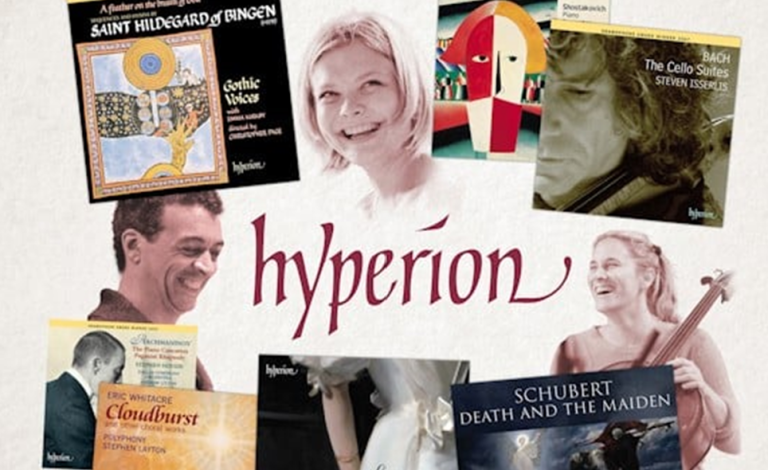Taming the beast – taking control of music performance anxiety
 Your heart pounds like a timpani, your pulse races faster than the ‘Minute Waltz’; your throat is drier than rosin, whilst the (Blue) Danube could gush from your sweaty palms any moment; you’re so shaky, the hours of vibrato practice were quite redundant. Yet you have to get control yourself and perform – whether it is a concert, audition or exam, these are the all too familiar manifestations of performance anxiety – and when it happens in music performance, where there are no second chances, Music Performance Anxiety (MPA) can be a demon that can destroy careful preparation, distort talent and even ruin a career.
Your heart pounds like a timpani, your pulse races faster than the ‘Minute Waltz’; your throat is drier than rosin, whilst the (Blue) Danube could gush from your sweaty palms any moment; you’re so shaky, the hours of vibrato practice were quite redundant. Yet you have to get control yourself and perform – whether it is a concert, audition or exam, these are the all too familiar manifestations of performance anxiety – and when it happens in music performance, where there are no second chances, Music Performance Anxiety (MPA) can be a demon that can destroy careful preparation, distort talent and even ruin a career.
Professor Dianna Kenny, is Professor of Psychology and Music in the Department of Performance Studies, within the Faculty of Arts at the University of Sydney . She has made a study of this phenomenon and her book, “The Psychology of Music Performance Anxiety” has just been published by Oxford University Press. It will be available in Sydney in July. Five years of research, and a review of data extending back over the last decade, Professor Kenny has spent two years writing her book.
MPA is a fascinating and complex topic which affects musicians at all levels of performance skills. She also describes insomnia, a tendency to catastrophise the situation, breathlessness, an upset stomach and nausea as elements of a group of symptoms that can be quite complex and very individual, often determined by the musician’s own experiences.
Professor Kenny believes that the prevalence of MPA is higher than we may realise. Her research indicates that up to 31% of professional musicians take prescription medications to manage the debilitating symptoms of what are simply called “nerves”. Despite their reputations as consummate musicians Pablo Casals, Barbra Streisand, Frederic Chopin and Sergei Rachmanninov are amongst those who have suffered MPA.
The insights offered by Professor Kenny’s work will be greatly appreciated by teachers of music, performance psychologists and musicians alike. “I’m hoping it will be a fundamental text in its area. There is no research that has covered the topic in this range and depth. The book proposes a typology of the condition and recommends treatments for MPA based on firm clinical, empirical and theoretical research” she says, and adds “Part of the purpose of my book is to alert people to how complex the problem is”.
A comprehensive approach to MPA, she says, involves competent assessment of the complex interface between the performer and the music, and factors within the performer. Then, there are factors that relate to the instrument, the audience, the situation, mastery of instrument and material and technique.
Once this is done, the treatment should be tailored to the individual rather than adopting a “one size fits all” approach. The therapeutic strategies need to take into consideration not only the inextricable link between psychological states and their physical symptoms, but the individual’s overall psychological development, including their psychological vulnerabilities. It is a task that requires time and a commitment that could last for months.
This is a vitally important subject. MPA, once established, will prevail like a pedal point, always present, determining what else can happen above it. Professor Kenny believes that most MPA starts early, sometimes in childhood and adolescence. If it is present in childhood, it is not well recognized, in part, because children often can’t or won’t articulate what they’re experiencing, don’t want to admit to it, are embarrassed, or accept it as an immutable part of performing. Early experiences are critical to professional musicians in choice of career and success in that choice. But it goes beyond this because many amateurs perform, undertake exams and front up for auditions, so MPA reaches to the community beyond professional performers.
The individual, society and posterity are the losers if talent is compromised by MPA. Therapists need to be familiar with the complexities of assessing and treating MPA. More importantly perhaps Professor’s Kenny’s research might make us think about what we do, as a society to create the conditions that generate MPA and the critical role played by parents, teachers and musical institutions in supporting children’s music education without creating debilitating stress.
‘The Psychology of Music Performance Anxiety’ by Professor Dianna Kenny is available at Gleebooks, Abbey’s Bookshop, Brays Brroks,Potts Point Bookshop, Angus and Robertson, RRP $69.95
Or you can order directly from OUP by phone, email or mail: OXFORD UNIVERSITY PRESS, AUSTRALIA FREEPHONE: 1300 650 616 EMAIL: [email protected], GPO Box 2784.
Please quote MUSIC when ordering by email or phone for a 10% discount.






